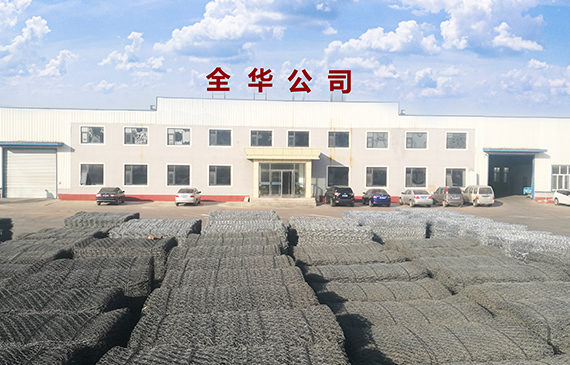Nov . 08, 2024 18:20 Back to list
gabion stone basket retaining wall
The Versatility and Strength of Gabion Stone Basket Retaining Walls
In the realm of civil engineering and landscape design, retaining walls play a crucial role in managing soil erosion, controlling water runoff, and creating visually appealing outdoor spaces. Among various types of retaining walls, gabion stone basket retaining walls have gained significant popularity due to their durability, aesthetic appeal, and environmental benefits.
What are Gabion Stone Basket Retaining Walls?
Gabion retaining walls consist of wire mesh baskets filled with stones, rocks, or other materials. The term gabion originates from the Italian word gabbione, meaning big cage. Initially used in military applications to strengthen fortifications, gabions have evolved into a widely used solution for modern landscaping and construction projects.
The basic structure of a gabion wall involves stacking these wire mesh baskets in suited configurations to form a solid barrier. The baskets are typically made of galvanized or PVC-coated wire to prevent rust and corrosion, ensuring the retaining wall remains structurally sound for many years.
Advantages of Gabion Stone Basket Retaining Walls
1. Durability One of the most notable advantages of gabion walls is their resilience. The combination of strong wire mesh and sturdy stones creates a robust structure that withstands harsh weather conditions, including heavy rainfall, flooding, and erosion. This durability means minimal maintenance is required over the wall's lifespan.
2. Eco-Friendliness Gabion walls offer an environmentally friendly solution by using natural materials. The stones used can often be sourced locally, reducing transportation costs and carbon footprints. Additionally, they promote natural drainage and prevent water accumulation, which further mitigates erosion and landscape degradation.
3. Aesthetic Appeal Beyond their functionality, gabion stone baskets add unique visual character to landscapes. They blend well with natural surroundings, allowing for creative designs that can incorporate various stone types and colors. Gardeners and landscape architects often use them to create attractive outdoor spaces, terraces, or seating areas.
gabion stone basket retaining wall

4. Cost-Effectiveness Constructing a gabion wall can be more cost-effective than conventional retaining wall systems. The materials are generally less expensive, and the installation process requires less labor. Since gabions do not require heavy machinery for installation, this can lead to significant cost savings, particularly for larger projects.
5. Sustainability With the growing emphasis on sustainability in construction, gabion walls fit perfectly into eco-friendly practices. Their ability to be filled with recycled materials presents an opportunity for sustainable construction techniques. Moreover, as natural habitats often thrive in the crevices of gabion walls, they can provide benefits to local wildlife.
Installation Process
The installation of gabion stone basket retaining walls involves several key steps. First, a suitable foundation is prepared, often requiring excavation and leveling. Once prepared, the gabion baskets are assembled, filled with stones, and then stacked to the desired height. It’s crucial to ensure that each layer is properly compacted for stability.
Drainage is another essential consideration. Gabion walls typically include drainage systems that allow water to flow freely, preventing pressure buildup behind the wall. Proper drainage enhances the longevity and effectiveness of the structure.
Design Considerations
When designing gabion walls, it’s essential to consider factors such as height, slope stability, and the type of fill material used. Local regulations may also dictate specific design requirements, particularly for taller walls. Consulting with professionals in civil engineering or landscape design can provide valuable insights to optimize the structure’s effectiveness.
Conclusion
Gabion stone basket retaining walls stand out as a robust, versatile, and aesthetically pleasing solution for managing soil and water in various landscapes. Their increasing prevalence across construction and landscaping projects is a testament to their many benefits, combining practicality with a seamless integration into the natural environment. Whether used in residential gardens or large-scale civil engineering projects, gabion walls offer a sustainable and effective means of erosion control and landscape enhancement. As environmental consciousness continues to rise, the use of gabion stone basket retaining walls will likely expand, promoting greener and more durable building practices.
-
Why PVC Coated Gabion Mattress Is the Best Solution for Long-Term Erosion Control
NewsMay.23,2025
-
Gabion Wire Mesh: The Reinforced Solution for Modern Construction and Landscape Design
NewsMay.23,2025
-
Gabion Wall: The Flexible, Seismic-Resistant Solution for Modern Landscaping and Construction
NewsMay.23,2025
-
Gabion Wall Solutions: The Durable, Decorative, and Affordable Choice for Every Landscape
NewsMay.23,2025
-
Gabion Basket: The Durable and Flexible Alternative to Traditional Retaining Walls
NewsMay.23,2025
-
Gabion Basket: The Proven Solution for Slope Stability and Flood Control
NewsMay.23,2025
-
Versatility of Chain Link Fence Gabion
NewsMay.13,2025






